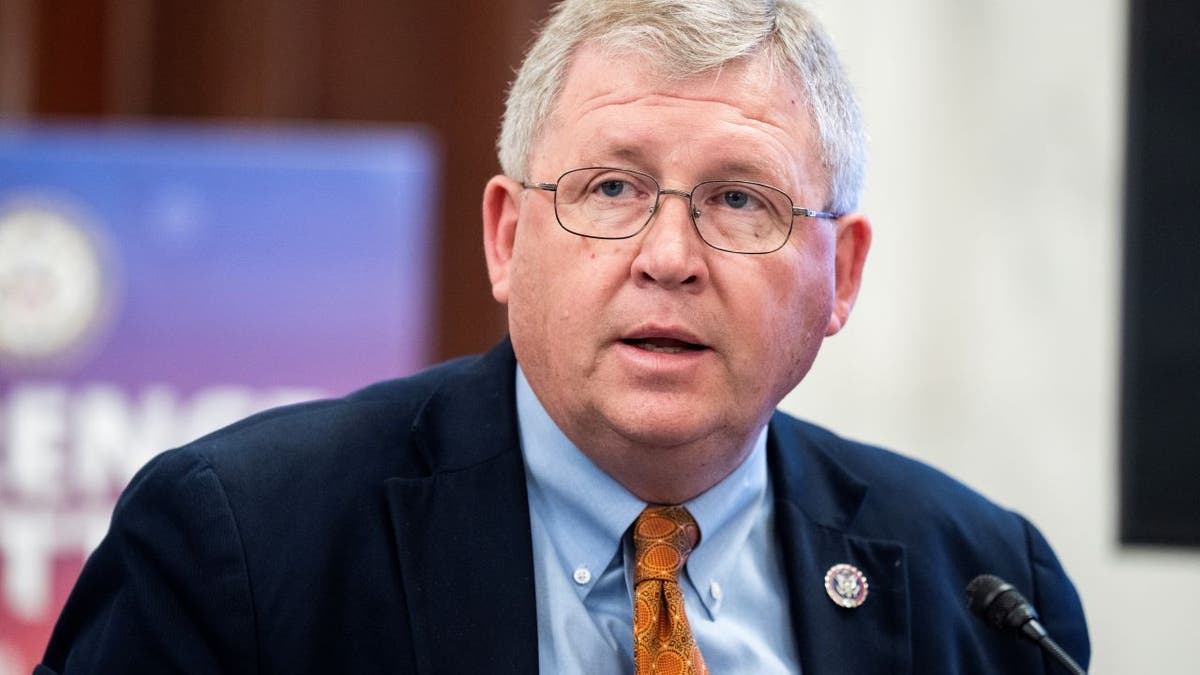
Republican legislation that would create additional federal safeguards to protect U.S. agriculture land from Chinese buyers overcame its latest hurdle by a substantial margin, putting it on track for a full floor vote.
The Agricultural Security Risk Review Act — introduced by Rep. Frank Lucas, R-Okla., who chairs the House Science, Space, and Technology Committee — was greenlighted during a House Financial Services Committee markup with unanimous support in a 42-0 vote last week. The vote on the bill, which received support from Chairman Patrick McHenry, R-N.C., and Ranking Member Maxine Waters, D-Calif., sets up a full floor vote in the coming weeks.
“Foreign holdings of U.S. agricultural land is dramatically exploding across the spectrum,” Lucas told Fox News Digital in an interview. “It’s not just land to produce corn or beans in the Midwest or medical marijuana in Oklahoma, it’s buying assets that process agricultural products that continue to affect the entire U.S. supply.”
“So, I’m very happy the bill passed out of the Financial Services Committee, not necessarily a haven for agricultural policy,” he continued. “I think we’re on the way to addressing this issue in the House.”
CCP-TIED EV COMPANY BACKED BY DEMS BUYS UP MICHIGAN LAND MILES FROM US MILITARY BASES

Rep. Frank Lucas, R-Okla., speaks during a committee hearing on May 12, 2022. (Tom Williams/CQ-Roll Call, Inc via Getty Images)
Under Lucas’ legislation, the secretary of the Department of Agriculture would be a full member of the Committee on Foreign Investment (CFIUS). CFIUS is an interagency taskforce dating back to the 1970s that is overseen by the Department of the Treasury and tasked with reviewing certain foreign investments that may pose a national security threat.
According to Lucas, his bill would ensure that CFIUS is better-equipped to reject agriculture transactions that threaten national security.
SENATE GOP UNLEASHES CAMPAIGN BLASTING DEM CANDIDATE FOR HUSH AGREEMENT INVOLVING CCP-TIED COMPANY
“Being a permanent member would allow us to educate the other members of CFIUS what to look for and what to be sensitive to when it comes to agriculture and agricultural production,” Agriculture Secretary Tom Vilsack said during a House Agriculture Committee hearing earlier this year.
In recent months, Republican lawmakers and local leaders nationwide have increased scrutiny on land purchases by foreign investors. The increasing number of land purchases has sparked concern that foreign companies and investors, particularly those from China, may be establishing a stranglehold of key U.S. food and energy supplies.
According to Department of Agriculture data, Chinese agricultural investment increased tenfold between 2009 and 2016 alone.

Agriculture Secretary Tom Vilsack speaks during a White House press briefing on Sept. 8, 2021. (Kevin Dietsch/Getty Images)
“The Chinese national government — or some people say the Chinese Communist Party — has been about acquiring all manner of assets, not just in the United States, but around the world, to control all sorts of resources,” Lucas told Fox News Digital. “I would argue that, in addition to the importance of national security — the guns and the bullets and the planes and the resources to defend ourselves — if we cannot feed ourselves, then we are lost.”
“I’m happy I finally got the attention of my colleagues in Congress. It’s moving forward,” the Oklahoma Republican added. “I wish people paid attention three or four years ago when I was trying to bring this to the top of the topic pile. But, at least now we’re doing something.”
In February, officials in Grand Forks, North Dakota, rejected a Chinese company’s proposed corn mill that received significant local pushback over concerns about its proximity to a U.S. Air Force base in the area. While the company, Chinese-owned Fufeng Group, was able to purchase 300 acres of land in the area, the local government rejected its building permits, effectively killing the project.
Air Force Assistant Secretary Andrew Hunter said prior to the Grand Forks City Council decision that the project would pose a “significant threat” to national security, but that CFIUS concluded that it did not have jurisdiction in the case.
In addition, a subsidiary of Chinese green energy firm Gotion High-Tech purchased 270 acres of land, including some zoned for agriculture use, in Green Charter Township, Michigan, in August. The land is slated to be used to build an electric vehicle battery component factory, but is located within 60 miles of military armories and within 100 miles from Camp Grayling, the largest U.S. National Guard training facility in the country.
Like its determination in the Fufeng Group case, CFIUS ruled in April that Gotion’s plans in Michigan are not covered transactions.

President Biden and Chinese President Xi Jinping hold a meeting on the sidelines of the G20 Summit on the Indonesian resort island of Bali on Nov. 14, 2022. (SAUL LOEB/AFP via Getty Images)
“There is a small but growing share of agricultural land that is owned by foreign interests,” Waters said after the bill advanced during the Financial Services hearing last week. “Persons involved in those purchases as well as transactions affecting the food supply chain could very well pose a threat to the U.S.”
“It is vital that CFIUS is equipped with relevant expertise to review transactions involving agricultural land or food-related businesses. H.R. 3378 is a commonsense bill that would formally add the Secretary of Agriculture to CFIUS, where food and agriculture are concerned,” she said.
CLICK HERE TO GET THE FOX NEWS APP
In addition, on Monday, the National Cattlemen’s Beef Association (NCBA) lauded Lucas’ bill, which it had endorsed.
“Cattle producers have been extremely watchful of foreign purchases of farmland, agricultural technology and other important inputs. Adding the Secretary of Agriculture to CFIUS would provide a critical voice for American farmers and ranchers and ensure that the federal government does not overlook agriculture’s role in national security,” said NCBA Executive Director of Government Affairs Kent Bacus.





